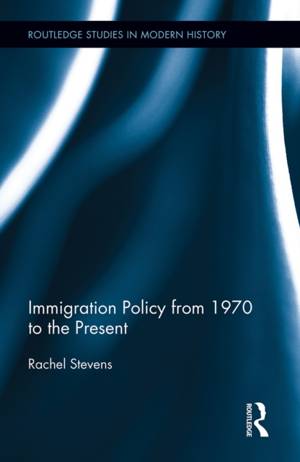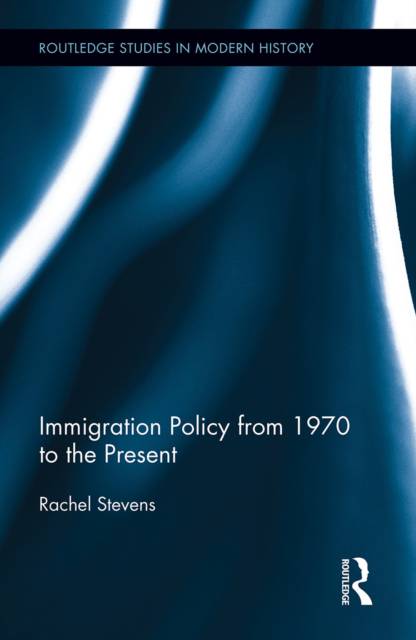
- Afhalen na 1 uur in een winkel met voorraad
- Gratis thuislevering in België vanaf € 30
- Ruim aanbod met 7 miljoen producten
- Afhalen na 1 uur in een winkel met voorraad
- Gratis thuislevering in België vanaf € 30
- Ruim aanbod met 7 miljoen producten
Omschrijving
This book examines national debates on immigration, asylum seekers and guest worker programs from 1970 to the present. Over the past 45 years, contemporary immigration has had a profound impact throughout North America, Europe and Australasia, yet the admission of ethnically diverse immigrants was far from inevitable. In the midst of significant social change, policymakers grappled with fundamental questions: what is the purpose of immigration in an age of mass mobility? Which immigrants should be selected and potentially become citizens and who should be excluded? How should immigration be controlled in an era of universal human rights and non-discrimination?
Stevens provides an in-depth case study comparison of two settler societies, Australia and the United States, while drawing parallels with Europe, Canada and New Zealand. Though contemporary immigration history that focuses on one national setting is well established, this book is unique because it actively compares how a number of societies debated vexing immigration policy challenges. The book also explores the ideas, values and principles that underpin this contentious area of public policy, and in doing so permits a broader understanding of contemporary immigration than outlining policies alone.
Specificaties
Betrokkenen
- Auteur(s):
- Uitgeverij:
Inhoud
- Aantal bladzijden:
- 244
- Taal:
- Engels
- Reeks:
Eigenschappen
- Productcode (EAN):
- 9781032242538
- Verschijningsdatum:
- 13/12/2021
- Uitvoering:
- Paperback
- Formaat:
- Trade paperback (VS)
- Afmetingen:
- 152 mm x 229 mm
- Gewicht:
- 331 g

Alleen bij Standaard Boekhandel
Beoordelingen
We publiceren alleen reviews die voldoen aan de voorwaarden voor reviews. Bekijk onze voorwaarden voor reviews.








